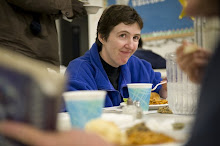I don’t want a tattoo. At least, I don’t think I do. But I’ve been thinking about the idea for awhile.
In the friends-I-never-get-to-see category, there’s someone here this weekend whose tattoo I’d only seen on Facebook. I asked to see it in real life. His wife jumped on it: “With what you’ve been through, you should totally get one.”
Wow. I wonder why that’s the go-to celebration? It absolutely is. When I had my cancer surgery two years ago, I thought of getting a cartilage piercing on my ear near the surgery site. I didn’t, because the scars are sacred enough. And I didn’t want to have to take metal jewelry out of sensitive places, for future scans.
K said, “Get a tattoo.” What she really meant was, “Hallow your body.” I get the connection; really I do. I’ve thought along those lines myself. But I have enough exposure to needles right now. And there isn’t a design I really want.
I called A this morning and we chatted about it. She doesn’t like the idea. But she said, “If there were a universal symbol for cancer survivor...” She nailed it. I’d mark my body in solidarity, in a New York second. I’d probably draw it on myself in Sharpie, and wear it around right now. But there isn’t one.
There’s the black ribbon for melanoma awareness, but I have no connection with that symbol at all. I’ve been thinking. If you have breast cancer, you can choose to be obvious or not afterwards, depending on how radical your surgery was and what you want to do. My scars are mostly where nobody will see. And for many of us, after the hair grows back (I’ve been leaving mine everywhere I go for two months, but it only looks thin even to me when it’s wet), there are no obvious physical signs.
What we have is community around the newly diagnosed. We have our stories. Two and a half years ago, shellshocked and disbelieving, I hung up the phone after my doctor called me. I turned to my community—seminarians, teachers and blog readers—and announced how terrified and helpless I felt. People were there for me in whatever ways they could be. And then I ran into a classmate in the parking lot. She said to me, “I had breast cancer eleven years ago.”
It was this:
“Oh, shit.”
“Been there. Let’s talk.”
I tell my own story all the time. Not because I either need help or am giving it, but because I’m living it right now. My friends imagine what I’m going through, and they care, so I tell them. I actually like it when people ask me questions. I get to talk about it. That also helps me process.
I can answer deeply, or not:
“I haven’t seen you in ages. I don’t write, but I read everything. How are you?”
“Fine right now. Treatment’s working. I get to be happy being alive.”
I don’t need mentoring through this, anymore. And I’m in the middle of it, so I can say to someone (or a group, like over my birthday weekend), “I know what this is like, and here’s what helps me through it.” I’m not yet cleanly on the other side.
If I live into normalcy long enough—by that I mean get up and go about my day, don’t throw up and don’t think about cancer—I will be like D when she met me that day in the parking lot. “You’re new. I know you’re scared. Let’s take a walk.” Or like Margaret, who met me online then and who still walks with me from the opposite coast. She said she doesn’t self-identify as a survivor very often anymore. But obviously she does, when people (like me) need her to. I’m at terms with what I’ve been through. I know what could be ahead of me—either health for a year or two or ten, or getting to be old. I’m more emotionally ready to be hit again with disease. I can do that moment in the doctor’s office. Long life is the great unknown to me.
Let me qualify what I said. I don’t need mentoring through crisis. I think I do, for finding my way back into life. But it’s not hard to find people. That’s just what happens. That’s what this community does. I tell my story; someone meets me with theirs.
If I live long enough, I’ll get to be one of them. And I think I’m figuring this out. If there were a physical, obvious sign that I could wear forever, I would do it. I want to be there for people when they’re looking for someone like me. But none of us ever do that. What D did in the parking lot was look perfectly normal, while she showed me her scrapbook from Mars.
Of course she came back different. But that was clear in the sacredness of what she did for me. Not in the shape of her chest. I’d have never known, except she told me.
If there were something like the pink triangle for cancer survivors, I’d get the ink. There isn’t. There’s no instant obviousness. We come out in relationship. We come out in story. It’s the way you wear it, on the inside.
I’m not done with this yet, but I’ve typed long enough. This is giving me a key, something to chew on for however long I get to. It’s another way of phrasing the question, “Who will I be now?”
I have questions along a side trail, about how to be in relationship with my post-cancer body itself—but I need to walk with them longer before I can get to the first beginning of that.




